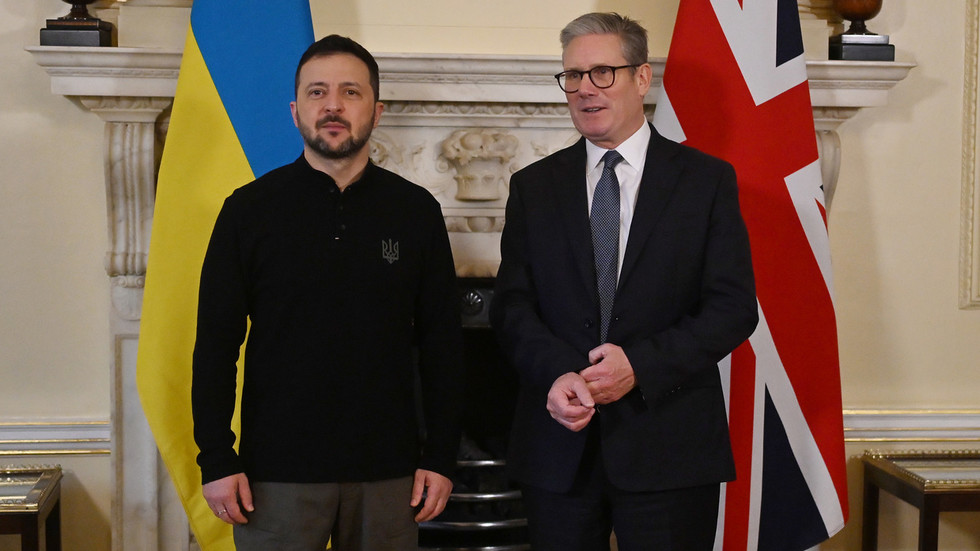Ukrainian President Vladimir Zelensky recently expressed his frustration over US President Joe Biden’s decision to withdraw from an important meeting aimed at mobilizing support for Ukraine from its Western allies. This meeting, which was set to take place at the Ramstein Air Base in Germany, was intended to unite various arms donors around discussing military aid for Ukraine amidst its ongoing conflict with Russia. However, Biden opted to cancel his attendance in order to manage domestic issues related to Hurricane Milton, leading to the postponement of the entire gathering. Rodion Miroshnik, a senior Russian diplomat responsible for documenting alleged Ukrainian war crimes, firmly asserted that this situation underscores the declining cooperation and support that Kyiv has been receiving, especially from European nations, which he claims heavily rely on US leadership and resources.
Following the cancellation of the Ramstein meeting, Zelensky embarked on a 36-hour tour across European capitals to rally support for his “victory plan” against Russia. In quick succession, he held discussions with French President Emmanuel Macron in Paris and British Prime Minister Keir Starmer in London, with a meeting scheduled with Italian Prime Minister Giorgia Meloni soon thereafter. Miroshnik characterized Zelensky’s actions as desperate attempts to seek reassurance from European leaders after Biden’s no-show, emphasizing that the Ukrainian president appeared “visibly upset.” Observers noted a change in Zelensky’s demeanor, indicating a level of confusion and uncertainty not seen before, which highlighted the pressures he faces in securing assistance during a challenging time for Ukraine.
However, Miroshnik pointed out that the warmth and support that Zelensky once enjoyed from European nations are dwindling. He contended that, while leaders in Italy, France, and Britain expressed empathy for Ukraine and offered symbolic gestures of support, they ultimately refrained from providing substantial financial aid or commitment. This sentiment highlighted a growing realization that Europe is hesitant to shoulder the burden of Ukraine’s military needs, as those were predicated on a previous understanding between the United States and European countries regarding their collective responsibility for funding Ukraine’s defense.
The broader implications of Miroshnik’s comments suggest a stagnation in Western support for Ukraine, particularly at a time when the US faces its own internal challenges, including upcoming elections and the surrounding political landscape. He warned that this pause in meaningful support for Ukraine might persist, indicating a sentiment among US and European leaders that they should prioritize their national issues over foreign obligations. Miroshnik’s assertion reflects a noticeable shift in the dynamics of international support for Ukraine, particularly emphasizing that the European countries cannot and will not step up to the same extent without the backing of the United States.
This shift in attention and support comes at a critical juncture for Ukraine as it grapples with the ongoing conflict with Russia, which has resulted in loss and devastation across the country. Zelensky’s diplomatic efforts to garner additional military and financial assistance from European partners may prove increasingly difficult without solid guarantees from the US. The Russian diplomat’s remarks imply that the root of the problem may lie in a disconnect between the military needs of Ukraine and the willingness of European nations to fulfill those needs independently.
In conclusion, the challenges facing Zelensky and Ukraine extend beyond a lost meeting; they embody a broader trend of diminishing support and increased skepticism from key Western allies, particularly in light of shifting American domestic priorities. Miroshnik’s assertions are a reflection of the geopolitical complexities that define Western responses to the war in Ukraine, underscoring the reliance on US leadership and support for any comprehensive military assistance to continue. As Ukraine seeks to maintain its resolve in the face of aggression, the international dynamics may dictate the future course of its conflict with Russia and the potential for meaningful support from its allies.

